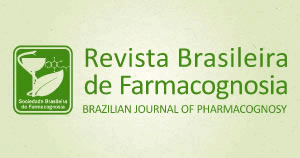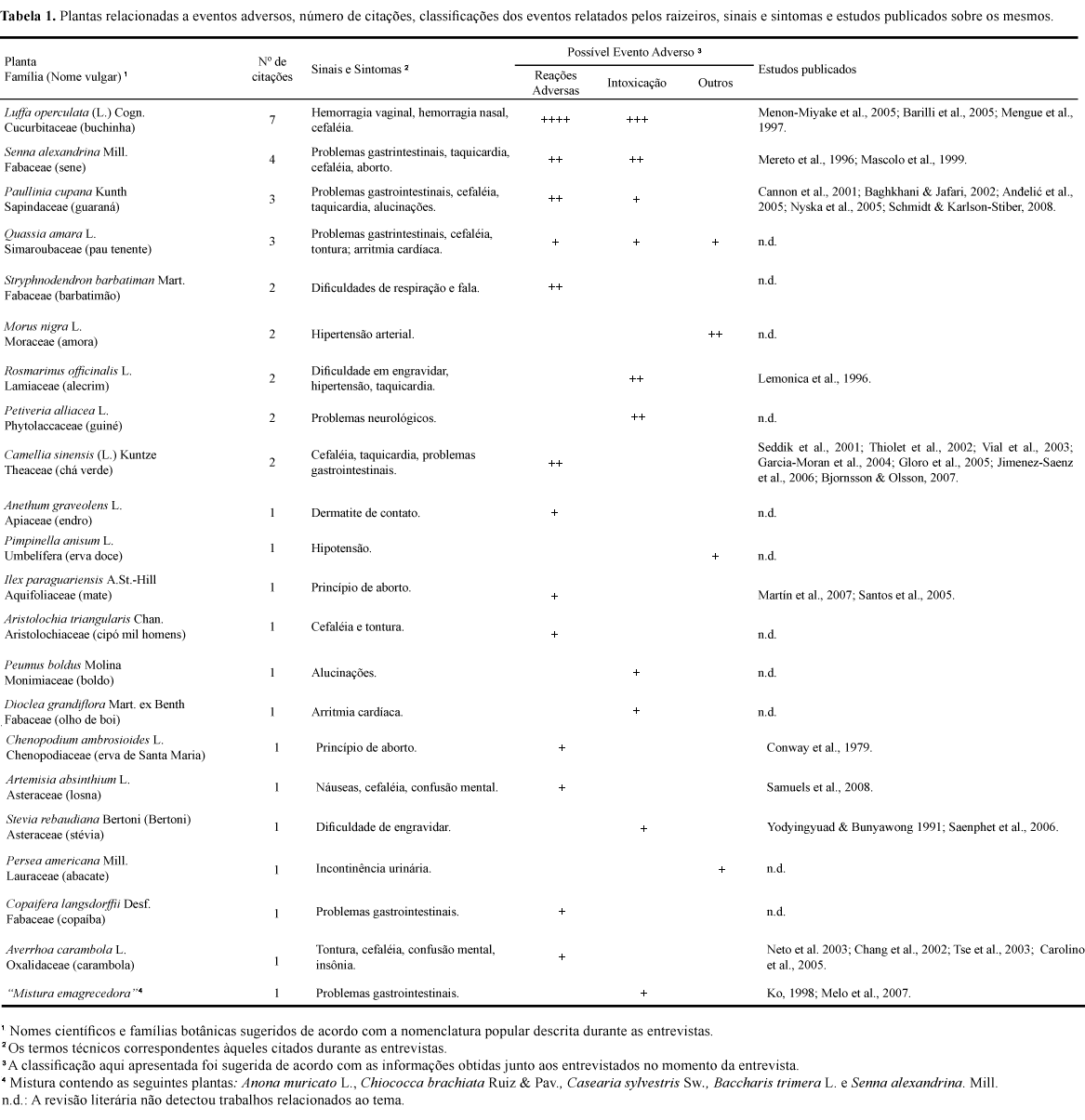Traditionally, medicinal herbs have been considered gentle and harmless because of their natural origin: "natural and therefore free of risks". However, toxic potential, various consumer-related factors (such as age, disease factors, pregnancy, etc), contamination, and lack of regulation concerning quality control are some of the risk factors deemed to be associated with herbal adverse reactions, poisonings and other complications. Over a 7-month period, semi-structured interviews were carried out with 20 "raizeiros" (traditional healers) in Diadema/SP. We found 40 unexpected events related to 22 species of medicinal herbs. The most frequent species reported were Luffa operculata - "buchinha" (7 reports), Senna alexandrina - "sene" (4 reports) and Paullinia cupana - "guaraná" (3 reports). Among the adverse events, the most frequent signs and symptoms reported involved the central nervous, gastrointestinal and cardiovascular systems. They also reported one case of abortion (related with S. alexandrina) and three deaths related with L. operculata. Adverse events that result from "natural" medicines are relatively uncommon, but they certainly occur more often than acknowledged. Medicinal plants are traditionally considered as innocuous, but as commercially available medicinal products they require sanitary surveillance in order to identify their risks, to give them a legal status, to evaluate their efficacy and to ascertain their safety.
Adverse reactions; poisonings; medicinal herbs; phytopharmacovigilance; semi-structured interviews

